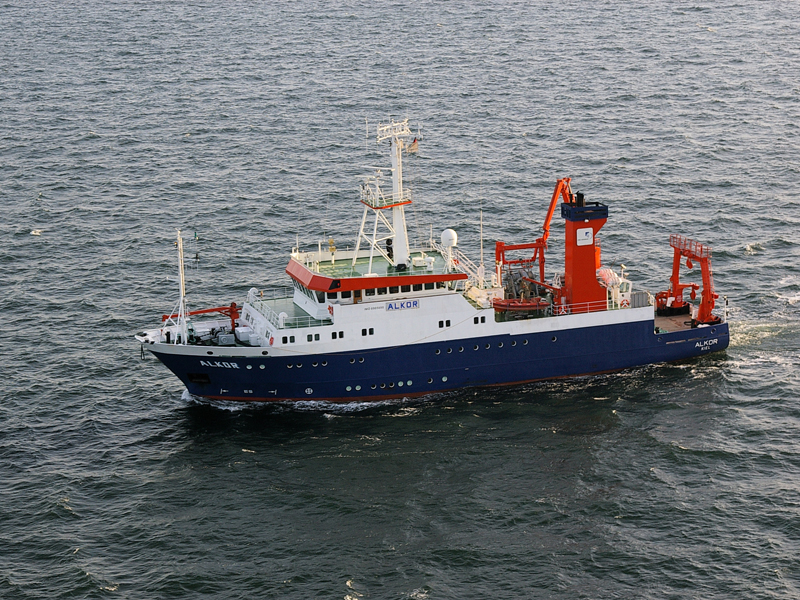ALKOR AL521
- Area:
- Baltic Sea
- Time:
-
16.04.2019 - 03.05.2019
- Institution:
- GEOMAR
- Chief scientist:
- Jan Dierking
Over the past 50 years, the Baltic Sea has undergone substantial changes in the context of climate change and increasing anthropogenic pressures, including warming, acidification, eutrophication, de-oxygenation, overfishing, and the spread of invasive species. Most of these changes have occurred much faster than on a global average, making the Baltic Sea a sort of time machine for changes to expect in other (coastal) areas. But what do all these changes mean for the ecosystems of the Baltic, and what are the ecological and economic consequences? These questions are difficult or impossible to answer with short-term scientific projects, which stresses the importance of long-term data series allowing insights into decadal scale changes.
The scientific work on board of RV Alkor during the cruises AL521 (April 2019, chief scientist Dr. Jan Dierking) and AL522 (May 2019, chief scientist Prof. Thorsten Reusch) continues one of the best long-term data series for the pelagic areas of the Baltic Sea. Specifically, we will continue multi-disciplinary lines of work that have been conducted annually since 1986, covering large parts of the deep basins of the Baltic (Kiel Bight, Arkona-, Bornholm- and Gotland Basin, and Gdansk Deep) and the corresponding salinity gradient from near marine to brackish conditions. Our approaches will include scientific pelagic fisheries, sampling of pelagic food webs (bacteria, seston, phyto- and zooplankton including fish eggs and larvae, jellyfish and nekton), oceanographic measurements and hydroacoustics.
An overarching aim is to improve our understanding of changes in species composition, biodiversity (including on the genetic level), food web structure and functioning in response to changes in physical/hydrographic parameters and anthropogenic pressures. The 2019 cruises will also include work for several external collaborations, including the University of Hamburg (“Marine microbes and viruses of the Baltic Sea under climate change”), the University of Stockholm “Using molecular tools to understand fish larvae feeding”) and the University of Southern Denmark (“Role of gelatinous zooplankton in marine food webs”), as well as an assessment of vertical distributions of microplastic. Both cruises are contributing to the international multi-partner projects EU Horizon 2020 GoJelly and EU BONUS XWEBS, and to several additional projects of the Research Division Marine Ecology at GEOMAR.



